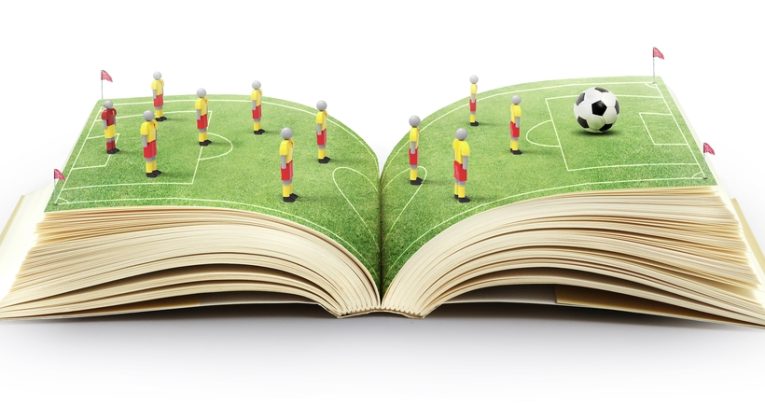Reading The Results – Use Euro 2016 To Get Your Young Readers Onside

Euro 2016 might cause some of your pupils to become restless with football fever – but as Jim Sells of The National Literacy Trust explains, that enthusiasm can also be used to get them reading…

- by Jim Sells

The biggest international football tournament of the summer is fast approaching. For many teachers, this will mean having to manage excitable pupils who are easily distracted by team news and tangles on the pitch…
But with the hype of Euro 2016 comes opportunity – and not just for the England team to put an end to years of disappointment among English football fans. The fervour of the tournament also presents teachers with a chance to motivate their football-loving pupils into reading for pleasure, and to teach literacy skills using football as a hook…
If you’re not a football fan yourself, however, you may be wondering where to begin…
A window to wider reading
Football can open a window to reading materials that many pupils may not have been introduced to before. While there are wide range of fantastic football fiction books out there, reading doesn’t have to mean just fiction. Newspapers, blogs and match reports can be a great way to engage reluctant readers, particularly boys, and encourage them to talk about what they have read.
The day after a big match, you could bring in some of the day’s newspapers and hand them out to pupils. Give them a few minutes to read the sports sections and to talk about them between themselves. Then bring them together to talk about the main stories as a class. This can be a fantastic way to encourage pupils who are typically quiet in class to talk about something they are passionate about.
There are lots of football-focused magazines, websites and even sticker-books that can also spark conversation and interest pupils who enjoy reading statistics and facts. Player profiles and interviews within these magazines can make for great class discussion topics. Talk about what you’d ask the players if you had the chance and put together a list of your class’ best questions. You could even ask the captain of the school football team to answer them.
Of course, while not all boys love football and hate reading (just as not all girls love reading and hate football – it’s the top participation sport for women and girls in England, after all), we know that boys can typically be more difficult to engage.
Our research shows [PDF] that there is still a significant gap between girls’ and boys’ reading habits and attitudes. 61.2% of girls enjoy reading vs 47.8% of boys, while half of girls (49.5%) read daily outside of school compared with 36.0% of boys. The score is similar with writing behaviours and attitudes.
Learning from history
The National Literacy Trust has worked with author Tom Palmer to create a toolkit of ideas and activities for teachers to use to engage pupils aged 7 to 13 during Euro 2016, which you can download from here.
The toolkit blends the tournament with ideas to commemorate the centenary of the Battle of the Somme – a battle that many professional footballers fought in. We will also be publishing a daily ‘live’ story to be read in schools libraries and homes, with a storyline that responds to the action on the pitch.
If improving writing is a focus at your school, there are plenty of football-themed activities that you can introduce to your pupils to help them practice key writing skills – often without them realising that they’re doing so.
After reading newspaper articles, challenge pupils to write their own match report. If you have a school blog, encourage them to write a series of blog posts about the action in France. You could also task pupils with writing Euro 2016 predictions, football-themed book reviews or a captain’s half time speech.
The National Literacy Trust’s Premier League Reading Stars Programme has demonstrated the power football can have on boosting pupils’ literacy skills. Our evaluation [PDF] shows that three out of four children who participated in the intervention made at least six months’ reading progress in 10 weeks. A further one in three made a phenomenal year’s progress or more. The number of children who enjoyed reading very much and read daily more than doubled.
Euro 2016 might offer an ideal opportunity to introduce pupils to football-themed reading and writing, but using football as a hook can continue long after the final whistle in France. When the Premier League season kicks off in August, the hype will start all over again…
For more information, visit www.literacytrust.org.uk or follow @literacy_trust










